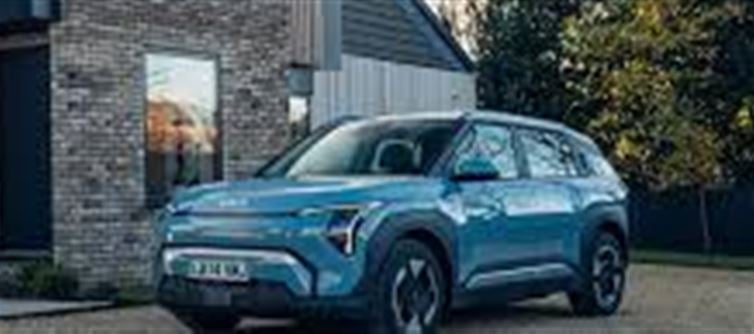
Kia has taken a major step forward in the electric vehicle (EV) industry by becoming the first automaker to publicly test an EV battery passport system at the cell level. This move is expected to significantly enhance the sustainability and cost-effectiveness of EV ownership, making it a game-changer for both consumers and the environment.
What Is an EV Battery Passport?
An EV battery passport is essentially a wallet PLATFORM' target='_blank' title='digital-Latest Updates, Photos, Videos are a click away, CLICK NOW'>digital record that tracks all important details about a vehicle's battery. This includes:
· Battery health and performance: Tracking charge cycles, capacity retention, and degradation over time.
· Manufacturing information: The origin of the raw materials, the manufacturing process, and any certifications related to the battery.
· Recycling data: Information about how the battery will be recycled at the end of its life.
· Repair and maintenance history: Details about any repairs, replacements, or maintenance work done on the battery.
In essence, the passport acts as a transparent and traceable history of the battery, making it easier for consumers to understand the lifespan and potential resale value of their EVs.
Why Is This Important for EV Owners?
1. Battery Longevity: By tracking the performance of the battery, EV owners can get a clearer picture of how long their battery will last and when it may need maintenance or replacement. This helps in managing ownership costs and avoiding surprises.
2. Increased Resale Value: The transparency provided by the battery passport allows second-hand buyers to gauge the health of the EV battery before purchase. This can lead to higher resale values for used EVs, as buyers will have more confidence in the condition of the vehicle.
3. Simplified Repairs and Maintenance: Knowing the battery’s repair history and potential issues can help technicians provide better service. It can also ensure that the right parts are used in repairs, further extending the life of the battery.
4. Battery Recycling: With a better understanding of the materials in the battery and its lifecycle, the EV industry can move closer to closed-loop recycling. This ensures that materials like lithium, cobalt, and nickel are reused in future batteries, making EVs more sustainable.
How Does It Make EVs More Affordable?
1. Lower Maintenance Costs: With the detailed data provided by the battery passport, consumers will be able to anticipate maintenance needs better, potentially saving on expensive repairs. Additionally, the clearer battery performance data will allow for more accurate warranties and service packages, which could lead to lower costs over time.
2. Reduction in Replacement Costs: One of the biggest concerns for EV owners is the cost of replacing the battery, which can be expensive. The EV battery passport system could lead to better longevity and more predictable performance, allowing automakers to offer warranties or battery replacement programs that are more affordable and longer-lasting.
3. Boosting EV Resale Value: As mentioned earlier, the ability to prove the health of the battery will help increase resale value. This means EV owners could recoup more of their investment when they sell or trade-in their vehicles, making the initial purchase more financially viable.
4. Streamlined Recycling: As the world shifts toward a more sustainable future, efficient recycling of EV batteries is crucial. A standardized passport system will streamline the recycling process, lowering the environmental cost of battery production and reducing the overall cost of raw materials.
Kia’s Role in EV Battery Passport Testing
Kia is the first automaker to take this step, testing the EV battery passport system on a cell level—the core unit of an electric vehicle’s battery. By focusing on this level, Kia is ensuring that every individual battery cell is tracked and managed, providing a deeper level of transparency and reliability.
In the future, this system could be adopted by other automakers, making it easier for consumers, governments, and manufacturers to track the sustainability of batteries and ensure the efficient use of resources. This could also lead to industry-wide standardization, where all manufacturers agree on how battery passports should be implemented.
Conclusion
Kia’s adoption and testing of the EV battery passport system mark a pivotal moment in the automotive industry’s shift toward more affordable and sustainable electric vehicles. By improving transparency, longevity, and recycling processes, this system has the potential to drastically reduce costs for consumers, increase resale value, and further reduce the environmental impact of EVs.
As more automakers follow Kia’s lead, the hope is that this technology will become a standard across the industry, making EVs more affordable and accessible for all. If successful, this initiative could help accelerate the global transition to clean energy transportation while providing EV owners with greater peace of mind.
Disclaimer:
The views and opinions expressed in this article are those of the author and do not necessarily reflect the official policy or position of any agency, organization, employer, or company. All information provided is for general informational purposes only. While every effort has been made to ensure accuracy, we make no representations or warranties of any kind, express or implied, about the completeness, reliability, or suitability of the information contained herein. Readers are advised to verify facts and seek professional advice where necessary. Any reliance placed on such information is strictly at the reader’s own risk..jpg)




 click and follow Indiaherald WhatsApp channel
click and follow Indiaherald WhatsApp channel